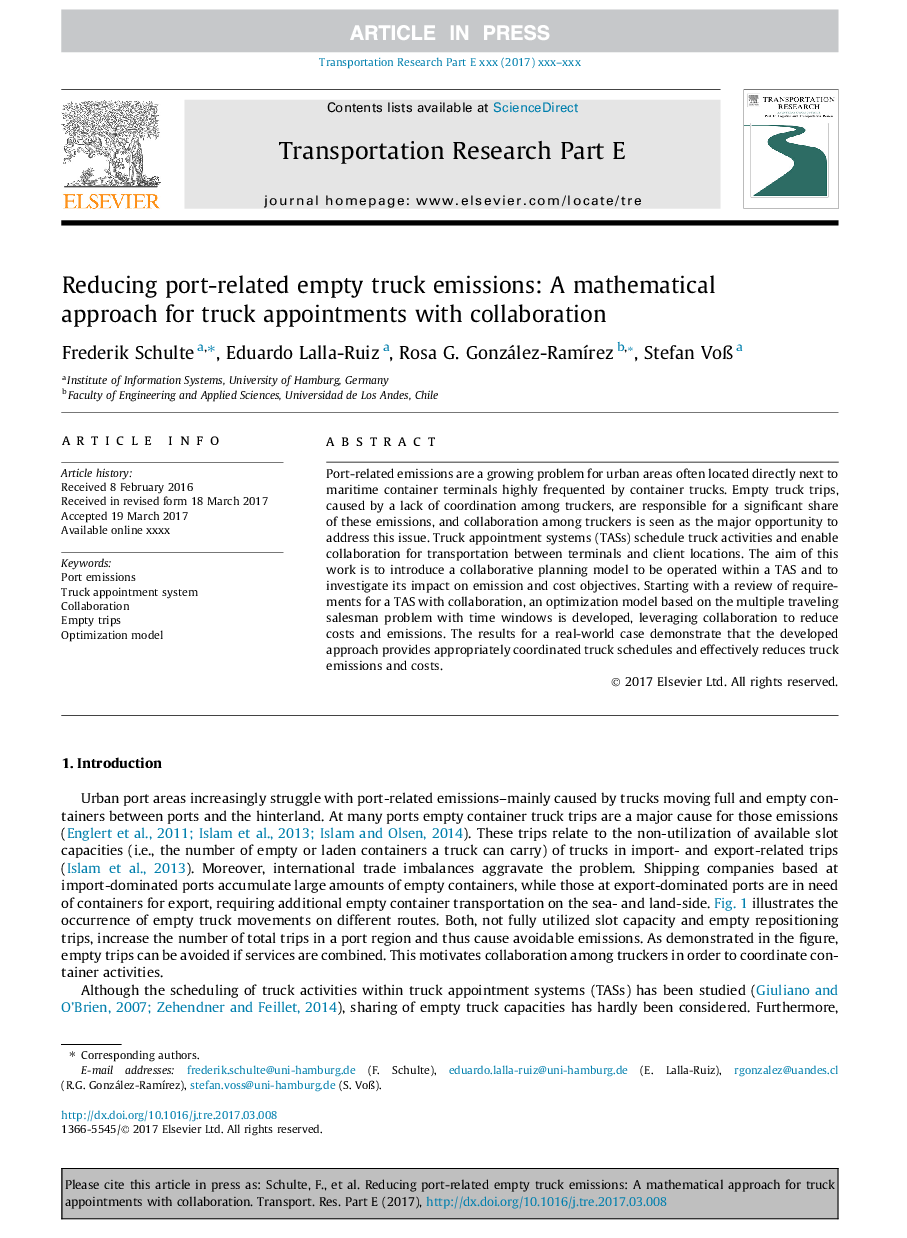| Article ID | Journal | Published Year | Pages | File Type |
|---|---|---|---|---|
| 5110441 | Transportation Research Part E: Logistics and Transportation Review | 2017 | 18 Pages |
Abstract
Port-related emissions are a growing problem for urban areas often located directly next to maritime container terminals highly frequented by container trucks. Empty truck trips, caused by a lack of coordination among truckers, are responsible for a significant share of these emissions, and collaboration among truckers is seen as the major opportunity to address this issue. Truck appointment systems (TASs) schedule truck activities and enable collaboration for transportation between terminals and client locations. The aim of this work is to introduce a collaborative planning model to be operated within a TAS and to investigate its impact on emission and cost objectives. Starting with a review of requirements for a TAS with collaboration, an optimization model based on the multiple traveling salesman problem with time windows is developed, leveraging collaboration to reduce costs and emissions. The results for a real-world case demonstrate that the developed approach provides appropriately coordinated truck schedules and effectively reduces truck emissions and costs.
Related Topics
Social Sciences and Humanities
Business, Management and Accounting
Business and International Management
Authors
Frederik Schulte, Eduardo Lalla-Ruiz, Rosa G. González-RamÃrez, Stefan VoÃ,
